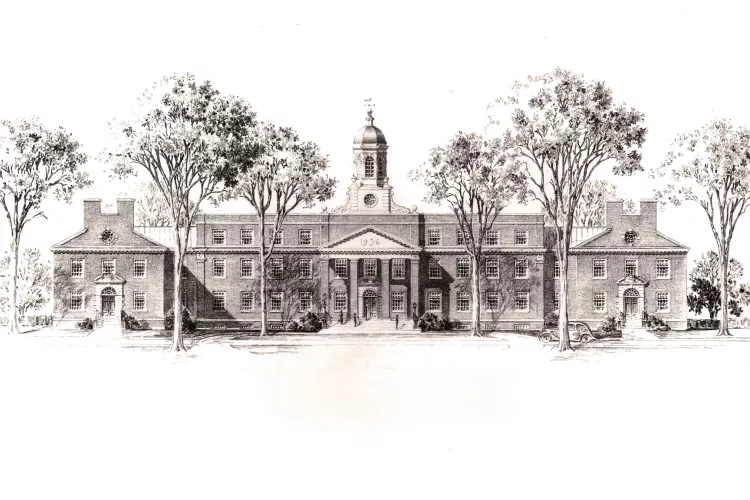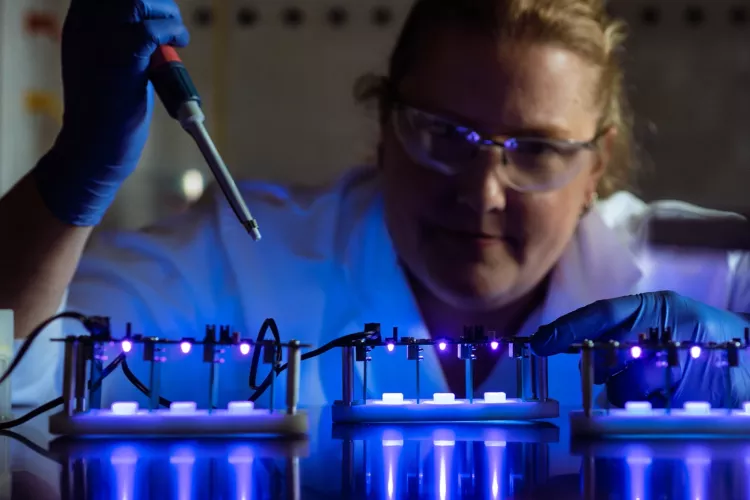COVID-19 antibody initiative receives $1.5 million to expand testing, launch 'virus radar'
October 2, 2024The Co-Immunity Project, a groundbreaking collaboration to track and curb COVID-19 in Kentucky, has received $1.5 million from the James Graham Brown Foundation, as well as additional gifts, to expand community coronavirus testing and launch a public "virus radar” for understanding its spread.
"We are deeply grateful for this timely philanthropic support that enables us to begin the next phase of the Co-Immunity Project," said Neeli Bendapudi, president of the University of Louisville. “It is vital for decision makers to have the information to track virus activity as the economy continues phased reopening. Knowing where the virus is will help us avoid a second wave.”
Watch a video of the virtual news conference here.
The new investment will support unique, three-step testing of individuals in the community for COVID-19 and SARS-CoV-2 antibodies along with testing of wastewater. The goal is to develop a real-time picture of the virus - a "radar" - beginning in Jefferson County, with the hope of later spreading this model to other affected communities worldwide.
“The James Graham Brown Foundation is pleased to join the efforts of the University of Louisville and other funders in this crucial work that will benefit and inform how we manage the COVID-19 pandemic,” said Mason Rummel, president and CEO of the James Graham Brown Foundation. “The University of Louisville and the Co-Immunity Project team’s swift action and proactive approach will help our community mitigate the impact of this virus now and in the future.”
A previously announced substantial gift from the Jewish Heritage Fund for Excellence and other individual donations enabled the completion of Phase I of the research, which included the testing of more than 1,000 health care workers in all three area hospital systems: Baptist Health, Norton Healthcare and UofL Health. The results of this work will be shared very soon.
The JGBF gift will help the project launch its Phase II, in which some 22,000 community members will be tested for the virus and associated antibodies.
Households will receive invitations in the mail to participate in this research from UofL. From those who sign up in response to the mailing, individuals will be selected to participate in testing based on age, race, sex, background and location to create a sample that matches the demographics of the overall population of Jefferson County.
A new group of participants will be selected every six weeks for virus testing and antibody testing. If someone receives the mailing and signs up on the Co-Immunity Project website, they may be called right away, they may be called for a later group or they may not be called.
Participants in this project will receive more than COVID-19 diagnostic tests. They also will be tested using cutting-edge antibody testing available at UofL to determine how much immunity was generated by such exposure and to identify those with the best immune responses as donors of high-quality plasma for treating patients with advanced COVID-19. This antibody testing is more accurate, specific and reliable than most antibody tests, providing much more significant data.
The three-step antibody testing to understand and make use of patient immunity is conducted at the UofL Center for Predictive Medicine for Biodefense and Emerging Infectious Diseases (CPM), which has established a high-throughput, real-time assay for antibodies from SARS-CoV-2, the coronavirus variant that causes COVID-19.
This comprehensive testing program identifies people with antibodies, their levels and quality, and tracks the evolution of the participants’ immunity. The CPM will utilize its NIH-designated Regional Biocontainment Laboratory, one of just 12 such facilities in the United States and the only one in Kentucky, to test for the neutralizing activity of the antibodies.
“It is very important that the citizens of Jefferson County respond to this call for participants,” said Aruni Bhatnagar, director of the Envirome Institute. “We cannot do this research without the participation of residents from every part of the metro area.”
Scientists from across the globe will have access to the resulting anonymized data for future study on the effectiveness of antibody therapy. The data also may be used to better identify individuals who are better able to fight off the coronavirus.
The Co-Immunity Project is a collaboration of the University of Louisville Christina Lee Brown Envirome Institute and the Louisville Healthcare CEO Council, along with Louisville’s three major health systems, Baptist Health, Norton Healthcare and UofL Health.
Betty Coffman is a communications coordinator focused on research and innovation at UofL. A UofL alumna and Louisville native, she served as a writer and editor for local and national publications and as an account services coordinator and copywriter for marketing and design firms prior to joining UofL’s Office of Communications and Marketing.
Related News



